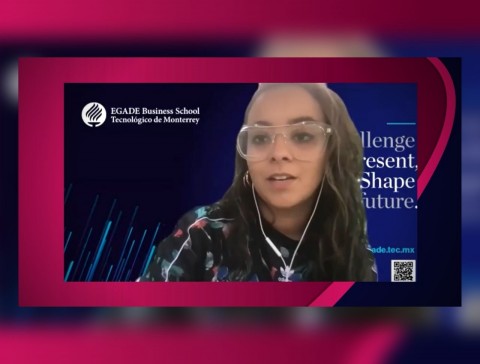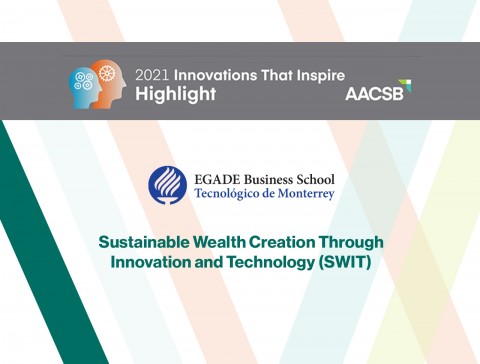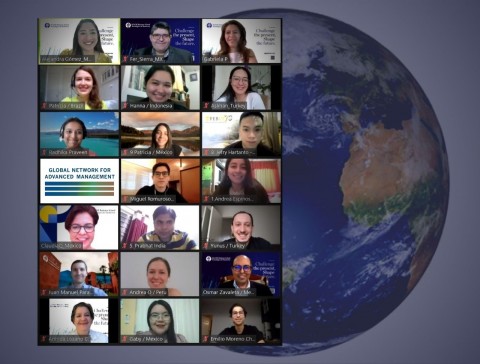EGADE Graduate Programs Leadership in Mexico and Latin America Reaffirmed in Eduniversal ranking
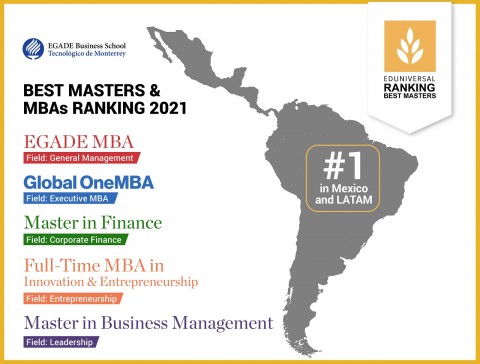
In the Eduniversal Best Masters & MBAs Ranking 2021, the EGADE MBA, Global OneMBA, and Master in Finance are the leaders in Mexico and Latin America in their respective fields of study.
By JOSÉ ÁNGEL DE LA PAZ | EGADE BUSINESS SCHOOL
EGADE Business School at Tecnológico de Monterrey reaffirmed the leadership of its graduate programs in Mexico and Latin America, in the Eduniversal Best Masters & MBAs Ranking 2021, whose results were published on April 8.
The EGADE programs that were ranked in the top places within the specializations classified at the Latin American region level were:
- EGADE MBA once more ranked 1st in Mexico and Latin America in the Top 20 - General Management specialization.
- Global OneMBA ranked 1st in Mexico and Latin America in the Top 20 Executive MBA specialization.
- Master in Finance yet again ranked 1st in Mexico and Latin America in the Top 20 - Corporate Finance specialization. It was also the only Mexican program to be ranked and 22nd worldwide in the Top 100 - Financial Markets global ranked specialization.
- EGADE - UNC Charlotte MBA in Global Business & Strategy ranked 1st in Mexico in the Top 20 - MBA Full Time category.
Other EGADE Business School programs that performed outstandingly in globally ranked specializations were:
- Full-Time MBA in Innovation & Entrepreneurship ranked 1st in Mexico and Latin America and 5th worldwide in the Top 100 - Entrepreneurship specialization.
- Master in Business Management ranked 1st in Mexico and Latin America and 13th worldwide in the Top 100 - Leadership specialization.
In addition, various graduate and continuous education programs of Tecnológico de Monterrey stood out in this ranking, including the Specialty in Energy Administration, that until December 2020 was part of the EGADE Business School portfolio of programs, and this year was ranked 1st in Mexico and Latin America in the category Top 20 - Energy and Natural Resources.
About the ranking results, Osmar Zavaleta, Interim Dean of EGADE Business School, said:
“For the EGADE Business School community, it is a great pride and satisfaction that our academic programs consolidate their leadership position in Mexico and Latin America for another year. This recognition by Eduniversal, which is fundamentally derived from the transformative leadership and impact of our professors, students, and alumni, encourages us to continue with this process of transformation and change, supported by educational innovation, to continue offering cutting-edge academic programs, with the highest global quality standards, which allow organizations and society to solve some of their most pressing problems.”
In this edition, the Eduniversal Best Masters & MBAs ranking classified 5,500 graduate programs from over 1,800 universities and business schools in 154 different countries.
The ranking methodology evaluates graduate programs mainly based on three criteria: the reputation of the program, salary for the first job of graduates, and student satisfaction.
EGADE Business School has been the best business school in Mexico and Latin America for 13 consecutive years, according to the 2020 results of the Eduniversal Business Schools Ranking. EGADE is also the only business school in our country to have achieved the highest classification of the 5 Palmes of Excellence, which includes the top 100 business schools recognized as Universal Business Schools with strong global influence.
View the full results of the Eduniversal Best Masters & MBAs ranking at: https://www.best-masters.com/
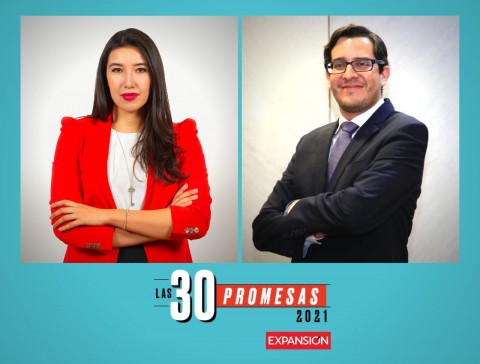
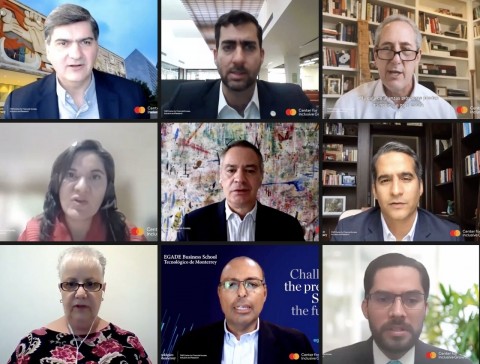
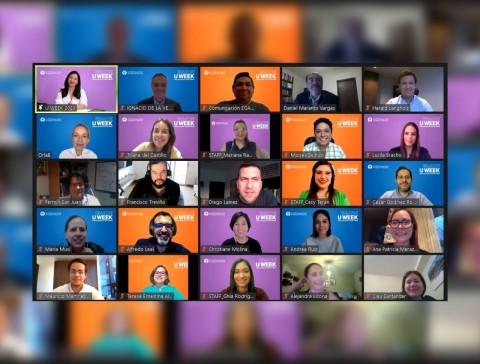
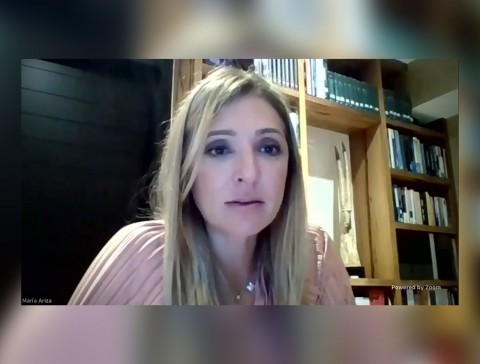
.png)
